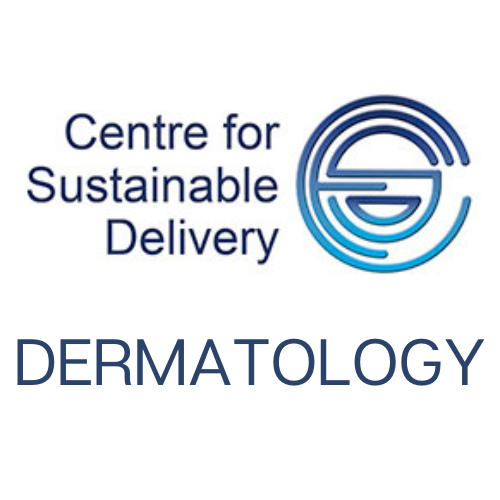Severity*
*A universally accepted definition of acne severity does not exist. Overall severity is a clinical judgement based on multiple factors including previous treatment response, scarring and family history. Lesion counts are commonly used in research and the definitions provided are based on NICE 2021 guidelines purely as a guide.
Mild - For mild to moderate acne, this includes people who have 1 or more of: any number of non-inflammatory lesions (comedones); up to 34 inflammatory lesions (with or without non-inflammatory lesions); up to 2 nodules.
Self care- patients should be encouraged to use a non-alkaline synthetic cleansing product daily, avoid comedogenic products and avoid scratching or picking of lesions
First line treatment options, taking into account severity and patient preference after a discussion of advantages and disadvantages:
- Fixed combination topical Adapalene with topical benzoyl peroxide (any acne severity) or;
- Fixed combination topical tretinoin with topical clindamycin (any acne severity)
- Fixed combination benzoyl peroxide with topical clindamycin (mild/moderate acne)
- Topical Azelaic acid (moderate to severe acne).
Consider benzoyl peroxide monotherapy if above options contraindicated or patient wishes to avoid topical retinoids/antibiotics.
Topical retinoids should not be prescribed in pregnant/breastfeeding women.
*Please see key messages box below*
Moderate - For mild to moderate acne, this includes people who have 1 or more of: any number of non-inflammatory lesions (comedones); up to 34 inflammatory lesions (with or without non-inflammatory lesions); up to 2 nodules.
Fixed combination topical benzoyl peroxide and topical adapalene OR topical azelaic acid twice daily in addition to an oral antibiotic for 12 weeks such as:
- Doxycycline 100mg OD
- Lymecycline (Tetralysal 300) 408mg OD
If no improvement after 12 weeks then trial another antibiotic. If improvement noted after 12 weeks can continue for another 12 weeks but ideally not beyond a total of 6 months. Stop antibiotics as soon as possible.
Tetracyclines can cause photosensitivity and are teratogenic. They should be avoided in children <12 years. Oral antibiotics may cause systemic side effects and antimicrobial resistance.
Erythromycin or trimethoprim (unlicensed) can be considered if contraindications/ intolerance to tetracyclines.
Trimethoprim can cause serious but rare side effects including agranulocytosis and severe cutaneous adverse reactions such as Stevens-Johnson syndrome.
Macrolides are linked with high antimicrobial resistance and are not first line treatments.
Hormonal Treatment Considerations:
- Progesterone only contraception may exacerbate acne.
- The type of progestin used in different combined contraceptive pills differ, as does their anti-androgenic action. For instance, levonorgestrel used in a number of commonly prescribed combined contraceptives has an increased androgenic potential compared with some other progestins.
- Ideally combined contraceptives should be used for females with acne who do also require a contraceptive.
- For women with polycystic ovary syndrome, treat as per first line management. If this is ineffective consider adding co-cyprindiol (Dianette®) or an alternative combined oral contraceptive.
- Those on co-cyprindiol should be reviewed at 6 months to assess need for continuation/other treatment options.
Severe - For moderate to severe acne this includes people who have either or both of: 35 or more inflammatory lesions (with or without non-inflammatory lesions); 3 or more nodules
Treatment should be started in primary care as per moderate acne (combination oral antibiotics and topical treatment) whilst awaiting appointment with a consultant-led dermatology team for consideration of isotretinoin.
